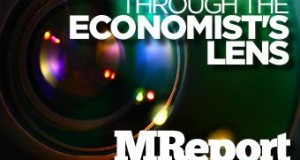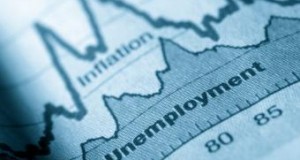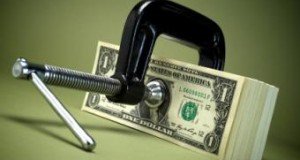Economic data for the week ending February 22--particularly for housing--was less than encouraging. A small increase in existing-home sales was the only bright spot, but that was weighed down by another drop in the median price of existing single-family homes to their lowest level in 10 months. The word "another" is critical because it means the drop in inventory in December did not result in higher prices. Indeed, the supply of homes for sale fell again in January, this time to the lowest level in 13 years.
Read More »Initial Time Jobless Claims Up, Adding to Labor Concerns
First-time claims for unemployment insurance jumped 20,000 to 362,000 for the week ending February 16, the Labor Department reported Thursday. Economists expected 359,000 initial unemployment claims. The spike in filings--the largest in three weeks--marked a reversal of what had been a downward trend in layoffs.
Read More »Housing Starts Dive in January, Permits Rise to 4 1/2-Year High
Housing starts plunged 8.5 percent in January to a seasonally adjusted annual rate of 890,000, the Census Bureau and HUD reported jointly.
Read More »Builder Confidence Slips in February, South Leads Declines
Led by a sharp drop in the South, builder confidence slipped in February to 46--the lowest level since November--the National Association of Home Builders (NAHB) reported Tuesday. Economists had expected the Housing Market Index (HMI), a measure of confidence, would improve to 48 from January's reading of 47. Nationally, two of the three index components--current single-family sales and buyer traffic--declined, while the assessment of sales for the next six months edged up.
Read More »First-Time Jobless Claims Drop, Continuing Claims Hit 43-Month Low
Bolstered by favorable seasonal adjustment factors, first-time claims for unemployment insurance dropped 27,000 to 341,000 for the week ending February 9, the Labor Department reported Thursday. Economists expected a much smaller decline to 360,000. Initial claims were under 350,000--a dividing line between a strong and weak labor market--for the third time in the last five weeks, hinting layoff activity has returned to normal.
Read More »First-Time Unemployment Claims Average Hits 5-Year Low
First-time claims for unemployment insurance continued to move sideways, dropping 5,000 to 366,000 for the week ending February 2, the Labor Department reported Thursday. The four-week moving average for first time claims fell 2,250 to 350,000--the lowest level since March 2008, a strong signal of an improving labor market.
Read More »Demand, Credit Terms for Loans Both Ease in Q1
The percentage of banks reporting stronger demand for mortgage loans dropped in the first quarter from the fourth quarter last year, and a slightly greater percentage are reporting easing lending standards, the Federal Reserve Reported Monday. In the case of "traditional" mortgage loans, 4.6 percent of banks reported standards easing somewhat. While the survey results suggest a direction of lending standards, they could be misleading: A bank which has tightened lending standards as much as possible may not ease them but cannot tighten further.
Read More »Commentary: Will Sunday Football Supersize The Economy?
So, there├â┬ó├óÔÇÜ┬¼├óÔÇ×┬ós some sort of football game this weekend. Like many economists, I├â┬ó├óÔÇÜ┬¼├óÔÇ×┬óm a bigger baseball fan than football, intrigued by the statistics in baseball, statistically a zero-sum game unlike most other sports. Just about every positive statistic in baseball for one player has a corresponding negative statistic for another. All that aside, there is some linkage between Super Bowl (yes, that's the name of this Sunday's game) and the economy, not just the stock market as many "analysts" like to write.
Read More »Unemployment Rate Up to 7.9% in January, Economy Adds 157K Jobs
If businesses had any reluctance to hire in December because of fiscal cliff concerns, they didn't make up for it in January: Payrolls expanded by 157,000, down from December, but the unemployment rate moved to 7.9 percent from 7.8 percent a month earlier, the Bureau of Labor Statistics (BLS) reported Friday.
Read More »Personal Income Jumps With Fiscal Cliff Dividends
Personal income jumped a staggering 2.6 percent in December, almost four times the 0.7 increase economists forecast, the Bureau of Economic Analysis reported Thursday. Part of the December increase, BEA said, was due to "accelerated bonus payments and other irregular pay in private wages in anticipation of changes in individual income tax rates." Personal consumption spending rose 0.2 percent, slightly below the expected 0.3 percent increase. The increase in personal spending--$22.6 billion --came primarily in spending on services.
Read More »
 theMReport.com Your trusted source for mortgage banking news
theMReport.com Your trusted source for mortgage banking news







